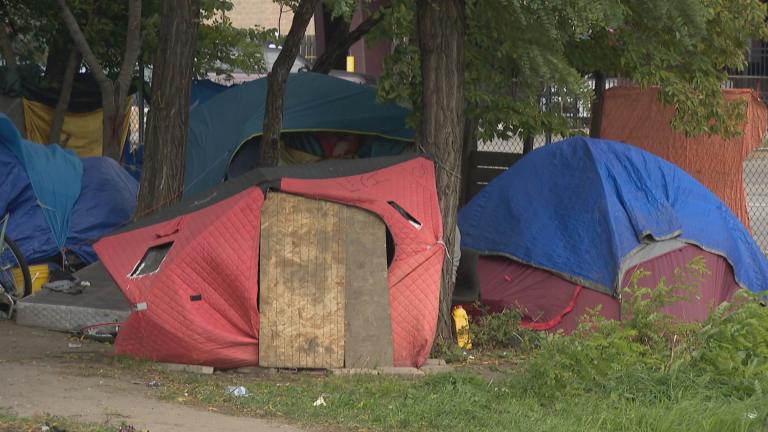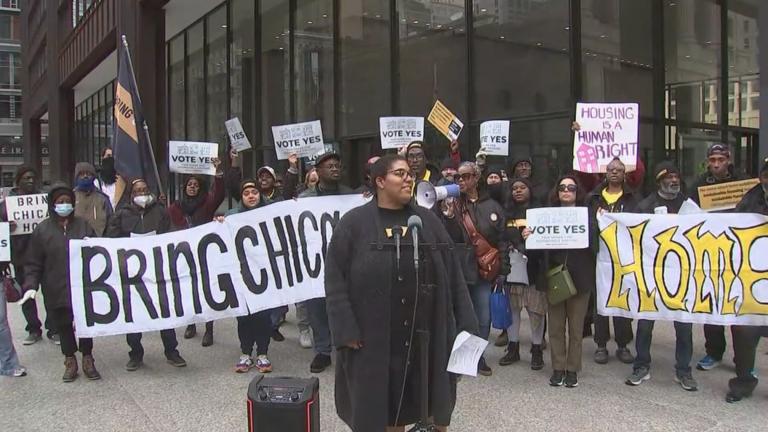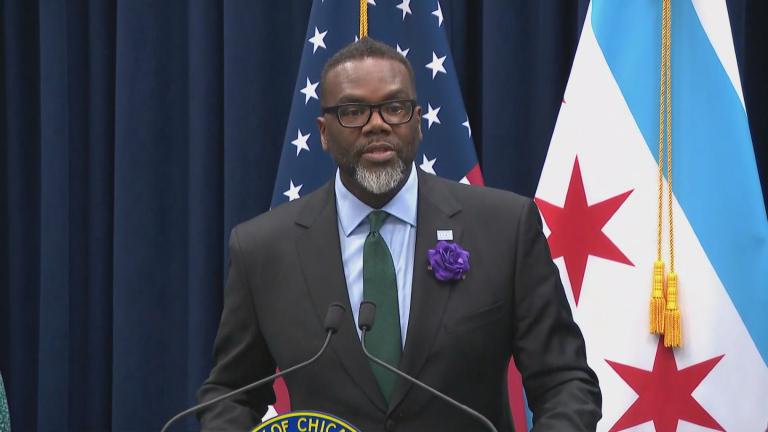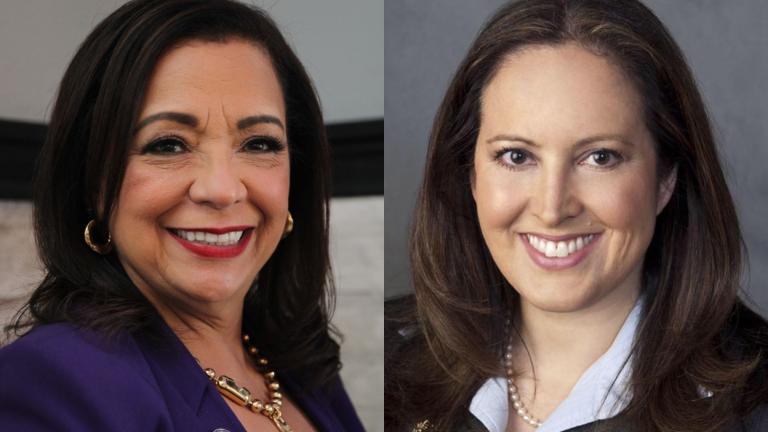WTTW is spending a year focused on the challenging experiences and unique perspectives of unhoused people across Chicago in “FIRSTHAND: Homeless.”
Homelessness has risen to record levels in the United States, with Chicago and Illinois part of that trend.
The federal government estimates roughly 12,000 people in Illinois experienced homelessness on an average night last year, but homeless advocates say the numbers are much higher.
The Chicago Coalition for the Homeless estimates more than 68,000 people in Chicago are experiencing homelessness. That higher number includes people who are doubled up, or temporarily living in someone else’s home, something the federal data from the U.S. Department of Housing and Urban Development does not include.
Chicago has also struggled to shelter more than 30,000 asylum seekers who have arrived from the southern border.
Early in 2023, the city began telling unhoused people they could no longer sleep at O’Hare. Doug Fraser, executive director of the nonprofit Chicago Help Initiative, believes that has contributed to the homelessness problem.
“What the city did was pointless and cruel. It just moved more people onto the CTA, hospital emergency rooms and encampments,” he said.
Chicago voters are gearing up for a momentous decision on how to address homeless. On March 19, a question will be on the ballot asking whether to increase taxes on sales of high-end homes and commercial properties to help fund homelessness prevention.
“Not only are the homeless disproportionately people of color, but there are 20,000 CPS students impacted by homelessness,” says Carol Sharp, president and CEO of The Night Ministry. “Using that real estate transfer tax as an option to ensure that those who are purchasing homes over a million dollars are able to contribute to building a budget around solving homelessness is vitally important.”
Detractors of the measure question how the money will be used and fear its effect on the housing market.
Fraser is optimistic the Bring Chicago Home referendum will pass.
“We know we have to change things,” Fraser said. “I think the bigger question is if we will consider new and potentially better solutions, such as focusing on families and communities as key actors needing support to both prevent and end homelessness, or will we return to past policies of building large and expensive concentrations of poor people in government housing.”







